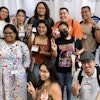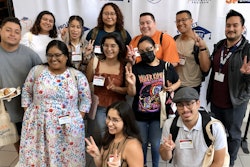A study released last week by University of California at Los Angeles researchers with support from actress Eva Longoria has put a high profile focus on the potential of U.S. Latinas for educational attainment and success.
Among the findings in “Making Education Work for Latinas in the U.S.,” a research report produced by the Civil Rights Project/Proyecto Derechos Civiles at UCLA’s Graduate School of Education and Information Studies, young Latinas who have Latina and male Latino teachers and counselors as role models and who are active in high school extracurricular activities have a much better chance of educational success. In addition to the study, the researchers produced a companion video that features Longoria and young Latinas whose life stories are documented in the study.
Longoria, who commissioned and financed the study through the Eva Longoria Foundation, said the findings will enable her organization to “fine-tune” its education work and advocacy. In addition, “We hope others will use this research to support Latina achievement,” she said in a statement. The foundation was founded “to empower Latinas to reach their potential through education and entrepreneurship,” according to the organization.
In completing the study, Civil Rights Project researchers conducted an extensive literature search on research that had relevant findings. They explored two large datasets, one national and one California-based, to identify “predictors of successful educational outcomes for representative samples of Latina youth who have recently been in high school and college.” In addition, the study included the case studies of seven young Latinas from tough circumstances who navigated their way to educational success through high school, community college and four-year universities.
“We found some things that surprised us a bit and, in other cases, affirmed that what we suspected might have been important for these young women actually were,” says Dr. Patricia Gándara, a UCLA professor of education and co-director of the Civil Rights Project.
For example, she says, “Young [Latinas] seem to be particularly affected by having Latino teachers in their schools.
“We didn’t have the same findings for the young men, and of course, we don’t find that for other groups. But for the young women there does seem to be a connection between having more Latino teachers and going on to college,” explains Gándara, who was the study’s principal investigator.














